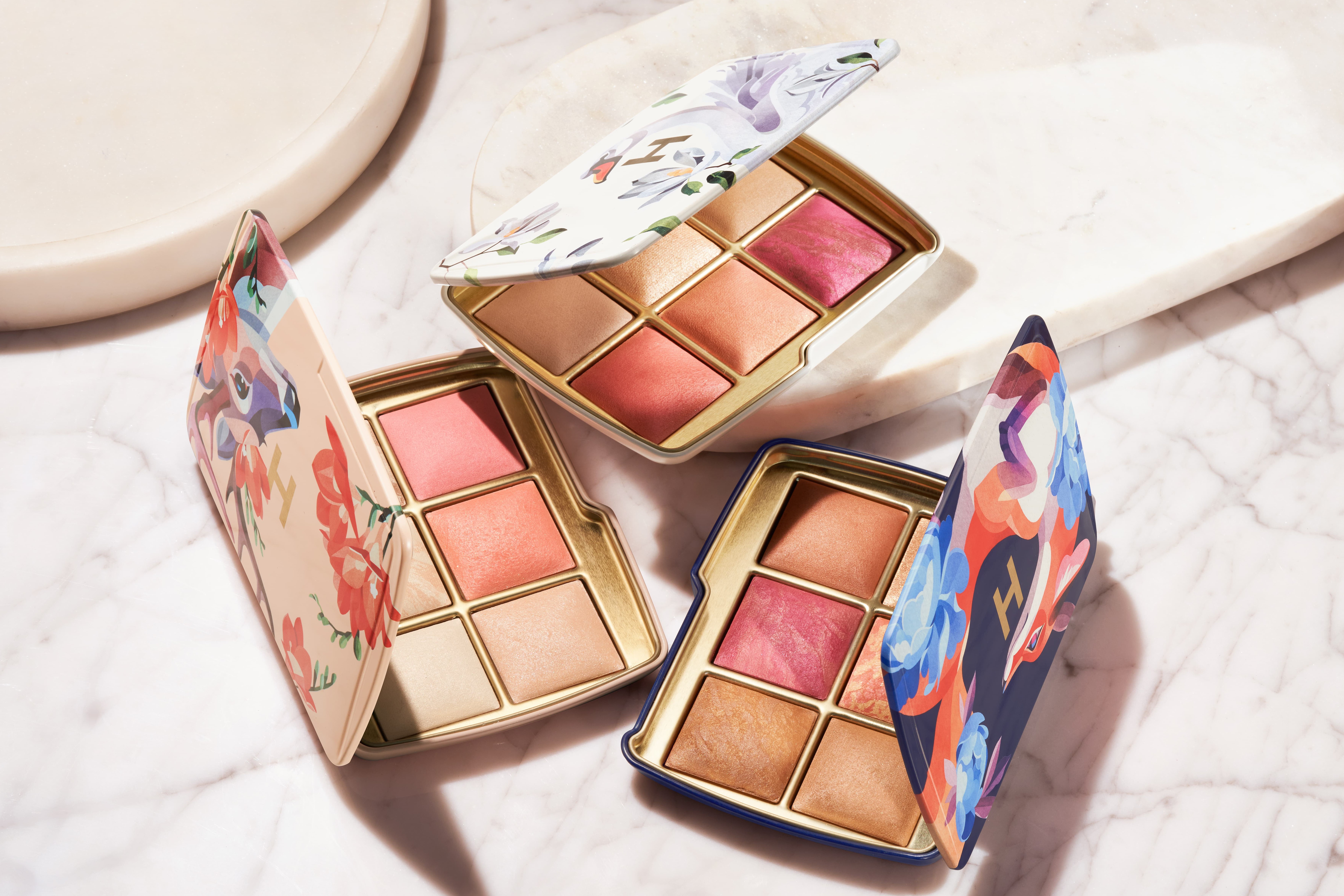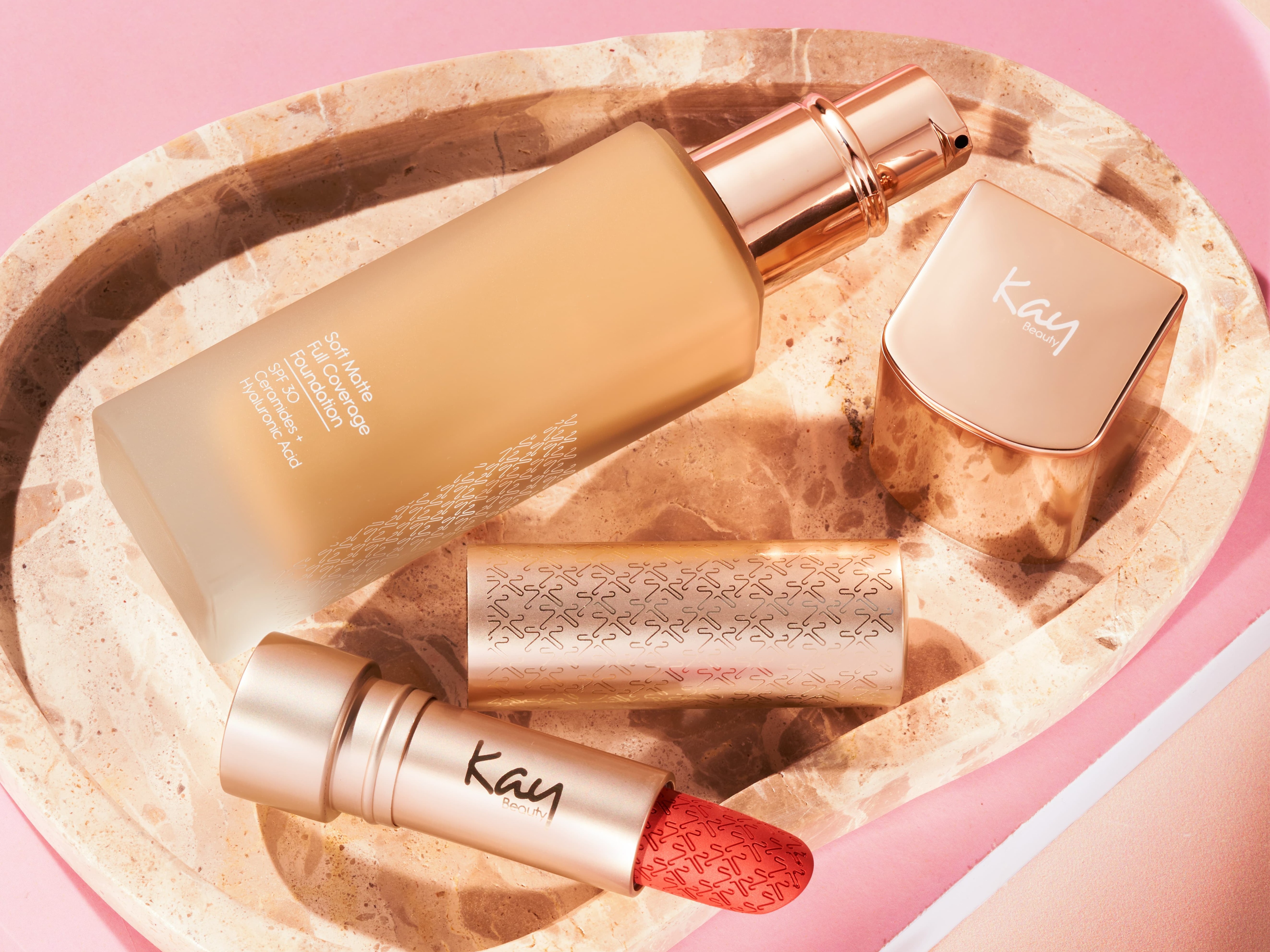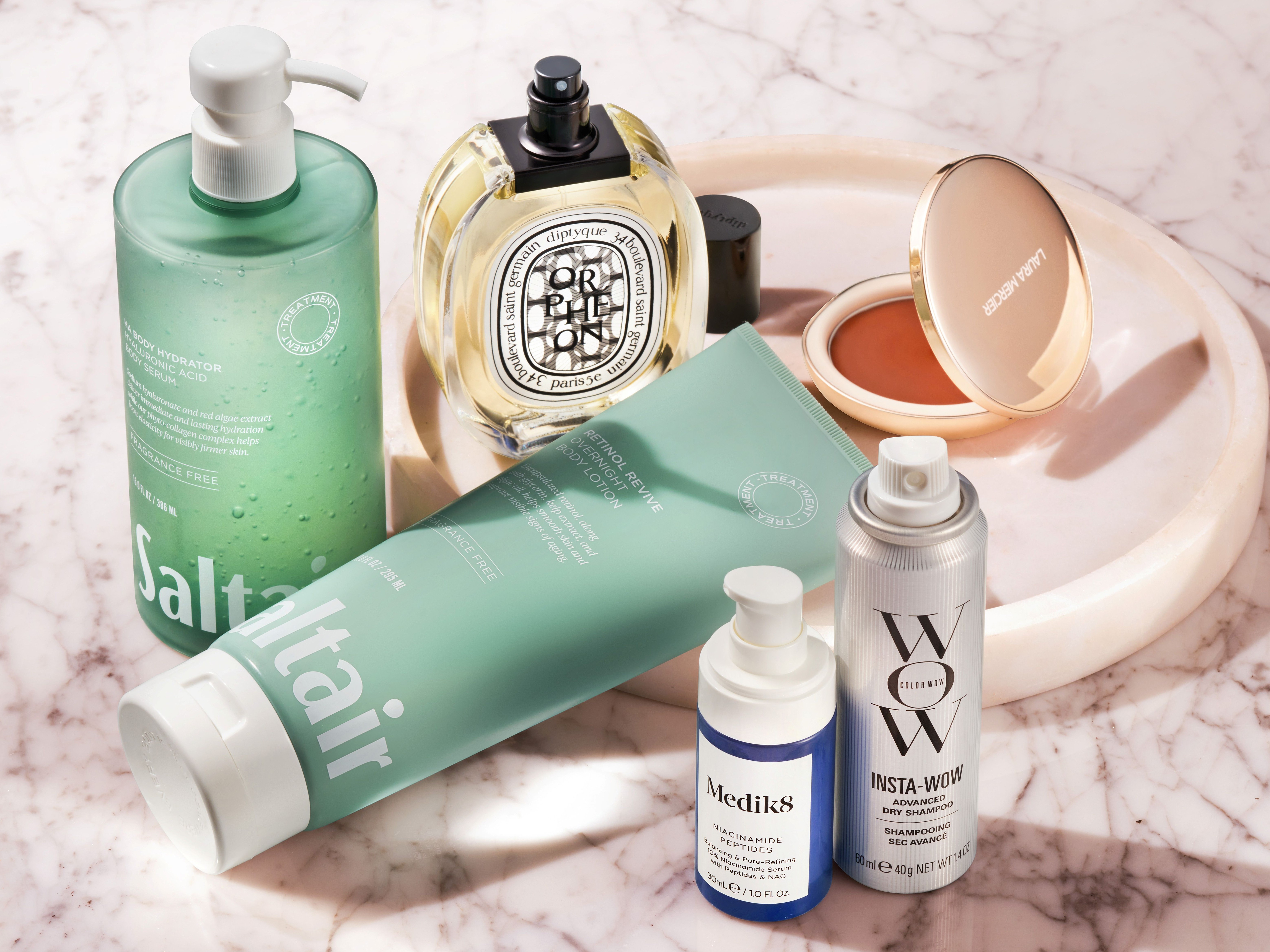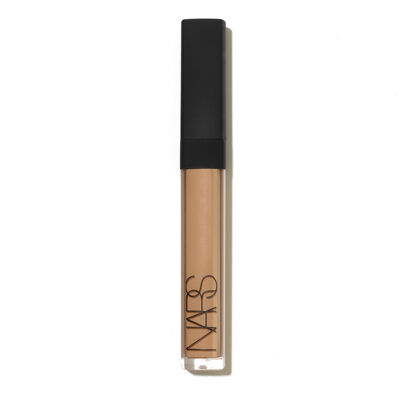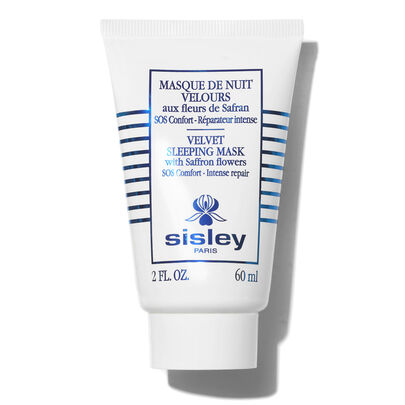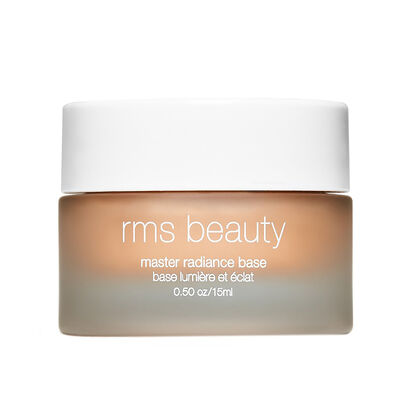Comfortable In My Own Skin
From battling acne breakouts to coping with perimenopause, three women reveal how they’ve learnt to embrace their skin…
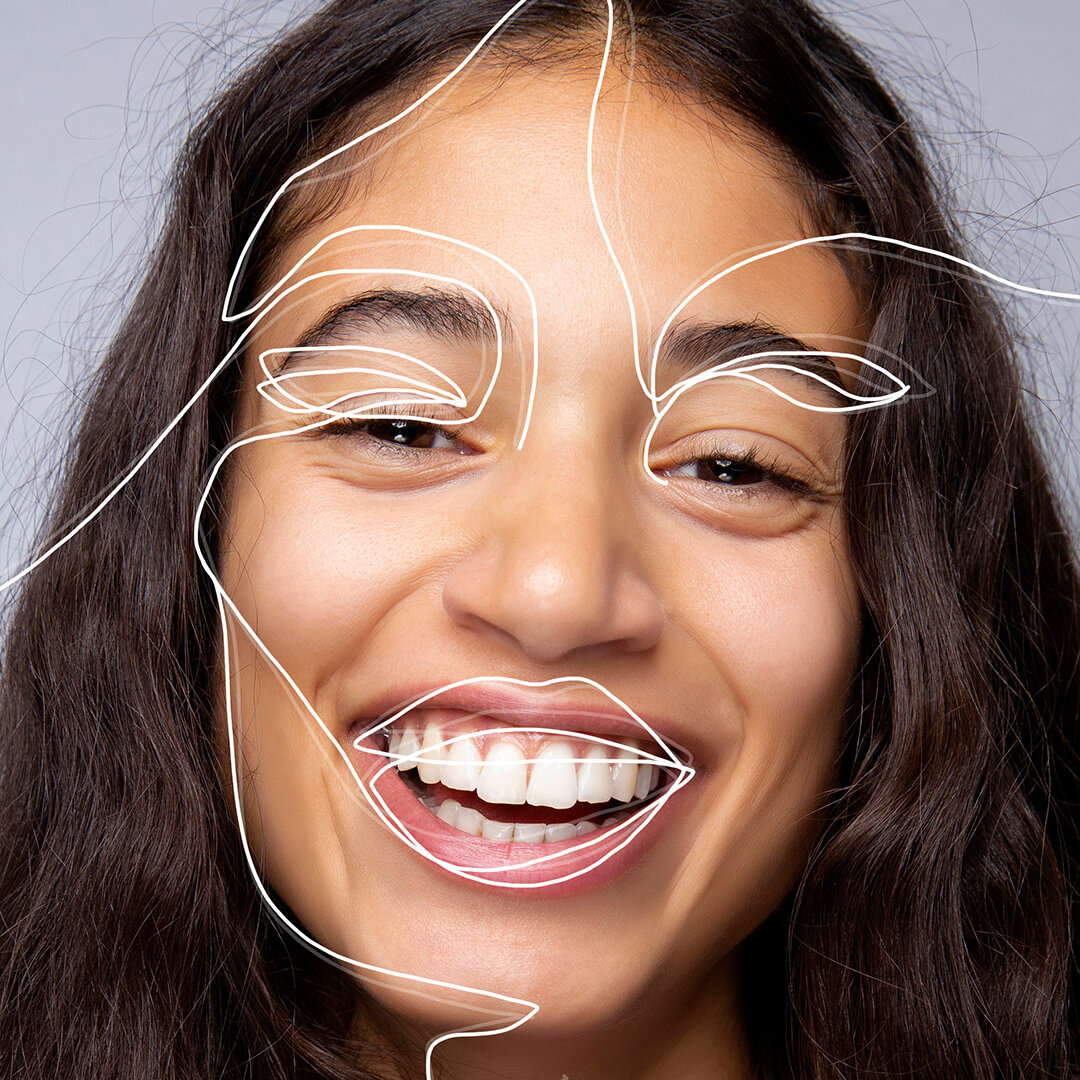
Dr. Anjali Mahto On Lifelong Acne Breakouts
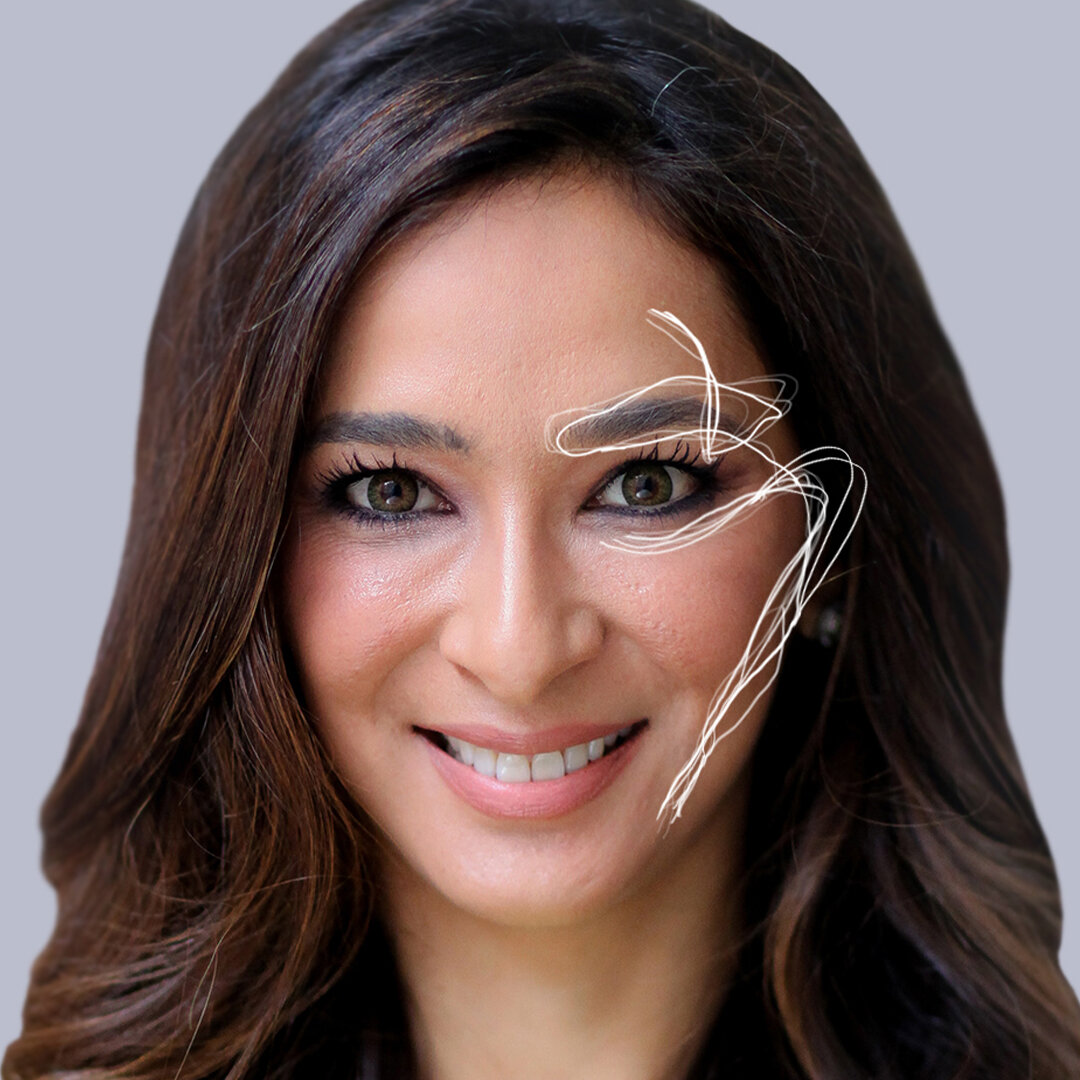
As a dermatologist in my 40s, people are always surprised to hear that I’ve struggled with my own skin. My battle with acne has been ongoing and over the years, it has been medically treated. I’ve also been fortunate enough to talk through my issues around my skin, but it’s taken me a long time to get here.
Damaged Goods
Damaged goods. And who likes or wants damaged goods? Sounds like a strange way to describe how acne made me feel in those early and already challenging years of puberty. But that was the only way I can think of how to explain what I saw in the mirror at 12 years old.
In retrospect, there was a lot more going on in my life than my skin. My father had just died. Two weeks after his funeral, I was about to start the third new school in as many months in as many countries. I had no friends or social network to speak of due to the multiple moves and little did I know then that acne was going to be one of the longest relationships of my life.
When I think back to those days, it still makes me want to weep. It is hard to explain to someone who has never had problems with their skin, how much the world judges those who look different or aren’t ‘perfect’. The stigma, the shame, the preoccupation you have about your appearance compounded by how others perceive you; that you’re dirty or unhealthy or inferior in some way. That you aren’t worthy of friendship, or love or respect and that you are “lesser” than those genetically blessed with glossy hair and glowing skin.
My Initial Reaction
So how did I respond? Like many others in the same boat, you start to deliberately avoid attention – you don't want others to look at you. You blend into the background and fall into a pattern of socially avoidant behaviour – no bright lights, no school discos or parties for me. Your face and ears burn as the gang of “cool girls” stare and talk about your skin loudly in the lunch queue to each other and you have nowhere to escape. So, you unwillingly listen to the unwelcome comments, laughter at your expense and unsolicited advice.
My acne persisted throughout my teenage years – funnily enough it never affected my body, my back and shoulders were always clear. But my face was another story, I always had oily skin, dozens of deep, painful spots, scarring and angry red marking. No amount of time spent on lengthy skincare routines or adherence to special or restrictive diets (cutting out dairy) made any difference.
Connecting With My Skin
And then I found makeup. It was like a glorious, bright light going on in a room which had been dark for far too long. It saved what little self-esteem I had left and allowed me to function almost normally after years of hating what I saw in the mirror. I spent hours learning how to do my base, effectively conceal and colour-correct crimson spots. I experimented with primers that to my joy made my scarring look less visible. I learnt to highlight my “good” features – my eyes – to detract away from my skin. Makeup and learning how to use it was my lifeline. It allowed me to connect with my reflection for the first time and not be repulsed by what I saw.
My experience made me recognise that skin conditions can be treated with the right products and treatments. And mostly importantly, that we need to be in a position where we feel in control of our skin. It doesn’t control who we are or what we can achieve. My acne has continued to be problematic over the past two decades, but it no longer defines me. It just happens to be a part of me now and I have made peace with that.
Krissy Turner On Navigating Beauty As A Mixed Race Woman
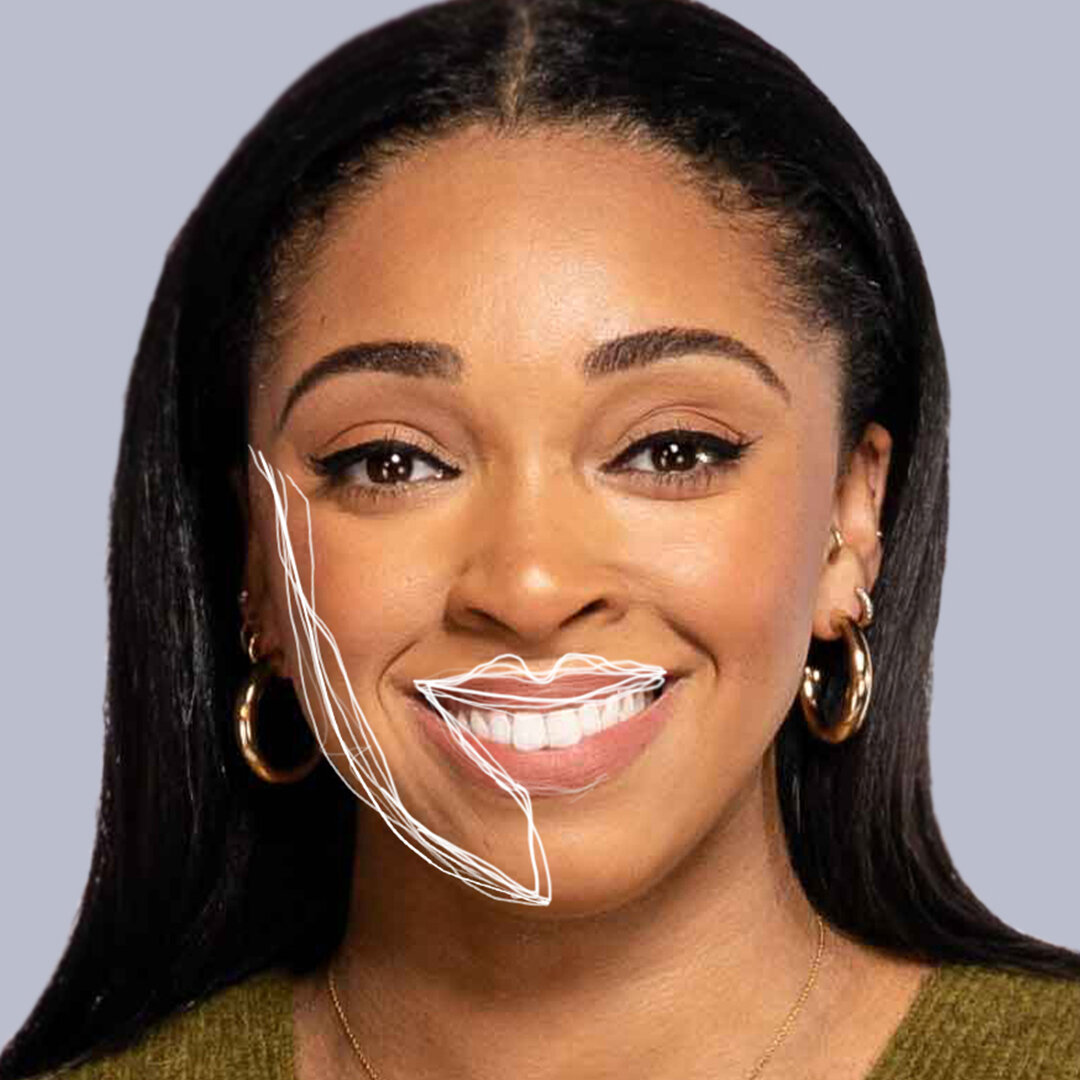
Having grown-up closer to the women on my mother’s side of the family, my view of skincare has been slightly skewed. My mum is white and has always had completely different skincare concerns to me: while she religiously applied rich, nourishing creams in a bid to prevent and control wrinkles, my main concern from the age of 13, has been - and likely will always be – pigmentation.
The Ghost-Face Era
Ever since I was three months old, I have battled with eczema - which runs in my father’s side of the family - and the super-sensitive skin that comes with. It flares up with stress (ideal as a teenager sitting GCSEs, then A-levels and a journalism degree) and essentially meant I had a 10-year flare up that saw steroid creams become a staple in my routine. My drier skin meant it had a naturally grey cast that I would hide with foundation.
Much like the majority of black women at the time, a foundation in my shade was depressingly elusive. I remember settling on ‘Sand’ (at least three shades too light, but the darkest available at the time) and wearing polo necks to school to hide the fact my neck was darker than my face. This wasn’t odd as most of my brown and black friends did it too. Of course, the too-pale hue and harsh ingredients had an even worse effect on my eczema-prone brown skin.
‘Normal’ Skin
During this time, I was getting to grips with a grown-up skincare regime: I ditched the strongly-scented face scrubs (the granules would scar my skin causing hyperpigmentation, while the scent irritated it) and too-thick moisturisers (my pores became clogged, and somehow, my face even drier) when a new gradual tan lotion was released. I remember the uproar surrounding the shades, the darkest having been named ‘normal to dark.’ As disheartening as it was, the feeling of abnormality sort of summed up my skincare experience thus far: I constantly felt ‘othered,’ when really, there were billions of women of colour that the beauty industry was ignoring - and that’s before I even get started on hair.
The Turning Point
In my late teens, shortly after I got my first ever wage, I took a trip to Oxford Street with a friend and headed straight for a NARS counter. Older cousins had flaunted its Nars Sheer Glow Foundation, N/A for months, and I was over the drying effects of my way-too-light mattifying mousse formula. I’d never spent so much money on a beauty item before and gripped the bag all the way home terrified someone would steal it. Before I even took my shoes off at home, I was applying my perfectly matched brown foundation.
Fast-forward to 2020, and the base I care about the most is my skin, though I own at least 10 different (and brilliant) foundations in my exact shade. I swear by my azelaic acid and vitamin C, while my mum is wedded to her retinols.
Kathleen Baird-Murray On Navigating The Peri-Menopause
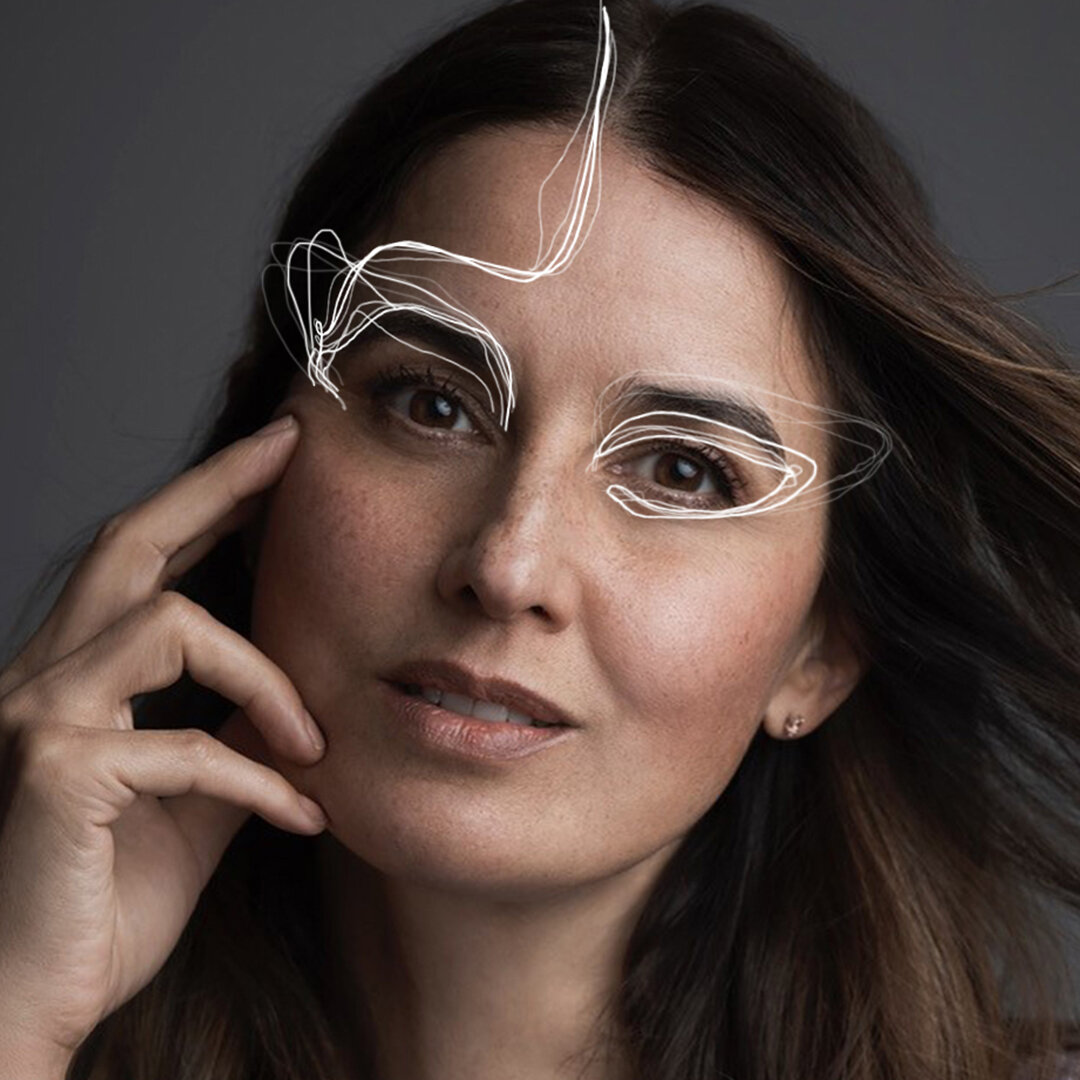
However old we are, we all have our own story about ageing, and mine has very little to do with wrinkles. At the age of 52, I think about ageing all the time, but my focus is almost entirely on what my life will look like rather than how my face will appear to others. My father died when he was only 60, my mother at 72, and ever since then I’ve been painfully aware that life is short, we can be robbed of it at any given moment, however happy we may be.
Getting older is an opportunity for reinvention, starting new chapters, finding new adventures, a chance to go to places I haven’t been before (once we are free and able to of course), and the looming menopause is a hormonal hurrah to remind us to get a move on -albeit within a framework of emotional and physiological chaos. As someone who is peri-menopausal, I have a new found inability to put up with things that don’t sit comfortably with me, and that freedom is a gift I wasn’t expecting.
Menopausal Anxiety
The downside is at this age, anxiety can spiral, if you give it a chance. Yes, it’s wonderful to dream of a future life, all honeysuckle, roses and regular pay checks, but I do hope that at some point I learn to live in the moment, for real, rather than constantly tell myself that life will be better when I’ve done this, that, or the other; tomorrow, next week or next month.
Rather than wrinkles, I worry about stress, posture, exercise and whether our NHS will be adequate to look after me should I become really infirm one day and how to cram walking 10,000, as well as preparing nutritious balanced meals, all the while working full time. It seems as if my generation will never be allowed to completely “let go”. We know too much.
Look Younger, Feel Younger
While wrinkles may not be a prime concern, I do think about my appearance, and I do believe that vanity plays its part in keeping us feeling young. Good skin starts with good sleep, to which end a Slip Silk Sleep Mask, £60.00 is invaluable, occasionally accompanied by a sleep treat mask like Sisley-Paris Velvet Sleeping Mask, £115.00, which leaves me with plump looking skin when I wake up.
I was once reassured by a dermatologist that my pigmentation - which has switched from being all about the under-eye shadows (genetic, from my half-Burmese mother) and a few freckles when I was younger, to uneven patches that form shadows on my jaw line and under my cheeks, will settle down once I’m “through” the menopause. That’s a silver lining, but in the meantime, I trust brands like Institut Esthederm to gently treat and protect my skin, have non-invasive facials whenever I can get them, and am never without a good tinted moisturiser (Laura Mercier, RMS and Chantecaille are all favourites).



